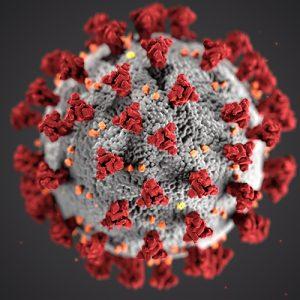The University of Washington Population Health Initiative recently awarded 21 rapid response grants to study COVID-19. Four of these grants include faculty members from the Department of Global Health – Deepa Rao, Kristina Adams Waldorf, Bryan Weiner, and James Mullins. These grants are meant to rapidly accelerate novel research designed to mitigate the impact of COVID-19 on multiple facets of life. The grants including DGH faculty are:
Project: Assessing and Addressing Impact of COVID-19 Outbreak among Latino Immigrants in King County
Deepa Rao, professor of Global Health and Associate Director of both the Global Mental Health and the MPH programs, is an investigator on this project that will address the potential added burden of the virus on Latino communities. The Latino population represents 22% of all COVID-19 cases in Washington State, with recent public health surveillance suggesting that Latinos are at increased risk of poor health outcomes due to factors like housing, transportation, employment, and immigration policies.
The team of investigators, which includes Jen Balkus of the Kenya Research and Training Center, will collect data from a group of recruited participants to assess the impact of COVID-19 on Latino immigrant households in King County, including exposure to COVID-19, disease severity, access to testing, and health care seeking, as well as the mental health, economic and social impacts of the outbreak. Additionally, they will develop an intervention to reduce stress, depression, and anxiety, and direct participants to local resources that can reduce negative mental health impacts.
Project: Washington State COVID-19 Pregnancy Collaborative
This project, with investigators Kristina Adams Waldorf (Adjunct Professor, Global Health) and Erica Lokken (Post-Doctoral Associate, Global Health), will study COVID-19’s effect on pregnant women in Washington State. The project’s central hypothesis states that COVID-19 infections during pregnancy can increase the risk for stillbirth and mental health disorders in the mother, among other things. Pregnant women are also typically a highly vulnerable group to pathogenic respiratory viruses.
The project will determine the natural history of COVID-19 in pregnancy and the impact it has on maternal, fetal, and neonatal outcomes. This grant will also provide funding for additional study sites across the state, with the ultimate objective of rapidly informing clinical care through a series of publications.
Project: Readying Pharmacies to Participate in COVID-19 Testing and Vaccination in Washington State
During any public health emergency, pharmacies play a critical role in both preparedness and response. With this project, Bryan Weiner (Professor, Global Health) and a team of investigators seek to rapidly increase community pharmacies’ organizational readiness to implement COVID-19 testing and vaccinations. The team will adapt the Washington Statewide Pharmacy‐Local Health Jurisdiction Memorandum of Understanding (MOU) Activation Plan while helping to coordinate existing pharmacy infrastructure.
The project will develop and disseminate an updated MOU Activation Plan that is specific to COVID-19, and identify tasks and resources that are needed in assisting pharmacies’ implementation of testing and vaccination. Lastly, the project will increase community pharmacies’ organizational readiness for COVID-19 by expanding testing and vaccination efforts statewide.
Project: FIRST Universal SARS-CoV-2 Vaccines
James Mullins (Professor, Global Health) is part of the team investigating alternative vaccines to stop COVID-19 pandemics from current and mutated strains that might circulate in the future. The team has designed vaccines to Focus Immune Responses on the Structural inTegrity (FIRST) of SARS-CoV-2 viral proteins. These vaccines are intended to drive T cell and antibody responses that avoid antigenic features of each protein.
Using mice, the team will determine the expression of FIRST immunogens in cells and immune responses. Then, lead immunogens will be tested with alternative delivery platforms to enable greater stability, lower manufacturing costs, and needle-free vaccination. This will then be taken forward into clinical trials.
